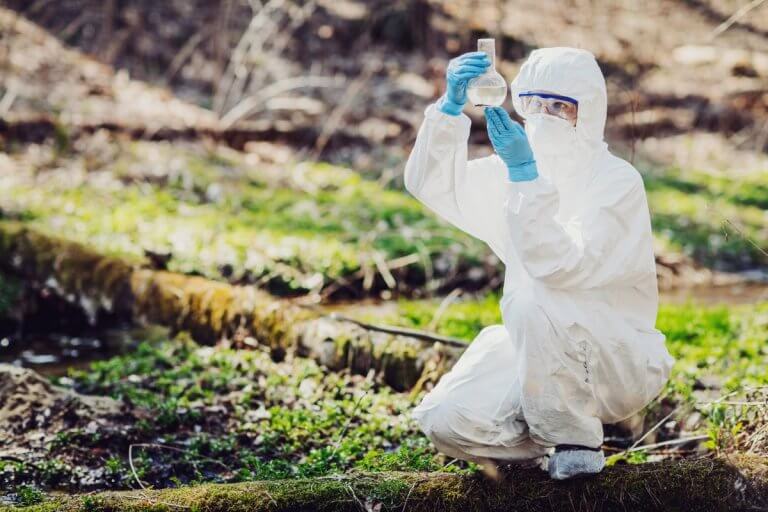
Have you ever considered continuing your education and taking your knowledge of sustainability science to the next stage? If so, you’ll be interested in the new cross-faculty research unit at the University of Helsinki.
Established in January 2018, HELSUS is an ingenious Helsinki initiative that’s contributing to sustainability transformations of societies through interdisciplinary and transdisciplinary research and education.
Otherwise known as the Helsinki Institute of Sustainability Science, HELSUS is a joint action unit of six key university faculties.
By combining the faculties of Arts, Law, Science, Agriculture and Forestry, Social Science and Biological and Environmental Sciences, HELSUS considers every subject area of sustainability.

The research within this forward-thinking institute also underlines essential themes of sustainability science that need to be addressed in today’s world. By following the five thematic areas of Production and Consumption, Global South, Theory and Methodology, the Urban and the Arctic, HELSUS allows students to acknowledge and understand different aspects of the topic.
Though all faculties at Helsinki are internationally-recognised for practical and efficient research efforts, one of the most active players in HELSUS is the Faculty of Agriculture and Forestry.
With a flair for promoting the responsible use of renewable natural resources within and beyond Finland, plus a reputation for producing award-winning graduates, this is a prime place to learn.
Consisting of seven MSc programmes, this HELSUS faculty is ideal for any postgraduate looking to dedicate their expertise to the subjects of agriculture, food, forest and environmental sciences, as well as economics and management.
Often selected by Helsinki students as an advantageous qualification to obtain, the Master’s Programme in Forest Sciences is ranked 4th in the world by The Center for World University Rankings 2017 (CWUR) and seeks to combat complex climate change issues.

As Professor Markku Kanninen, leader of MSc Forest Sciences outlines, “Our programme focuses on forests and trees in the context of societal needs, sustainable development goals and agreed climate targets. We offer an inspiring and dynamic study environment at the Viikki Campus and we bring together many other local and global research and educational institutions.”
In relation to Global South issues, the course highlights how important forests are in the hydrological cycle and the provision of clean water. You’ll also get to research the role of forests and trees in climate change mitigation and adaptation and you’ll gain a deeper understanding of why forests are linked to the reduction of global emissions.
Growing year by year, the amount of research conducted by HELSUS members is adding up and it’s a great time to join their projects! As Professor Kanninen adds, “We have carried out research during the last 25 years on the role of forests and trees and aim to improve the livelihoods of rural communities.”
Another influential element of Helsinki’s sustainability education is the Masters of Agricultural Sciences (MSc AS). For those of you who wish to discover modern methods of biological and genetic engineering and unravel the ethics of sustainable food production, this is the ideal programme to pursue. Plus, it scored 27th place in the NTU 2017 Agriculture rankings.

According to Helsinki Director of MSc AS, Mervi Seppänen¸ “Agricultural Sciences at Helsinki is an internationally competitive study programme. From agricultural systems and environmental technology to modern plant and animal biotechnology, there’s plenty to learn. The programme also connects to other Helsinki MSc programmes and provides students with great career opportunities.”
Since this MSc relates to issues we face in the current generation, you’ll reap the benefits of studying up-to-date fields such as plant production sciences, animal science, agrotechnology and environmental soil science. Also, after you graduate, this contemporary and flexible degree will work to your advantage as there will be plenty of job openings.
Additionally, concepts from this course often intertwine with the core themes of HELSUS. As Mervi Seppänen notes, “HELSUS has promoted topics on sustainability and integrated sustainable food production. The multidisciplinary approach to integrate agricultural and sustainability sciences has great potential in developing models for sustainable food systems both nationally and internationally.”
MSc Microbiology and Microbial Biotechnology
Or, if you’d rather use your international study experience at Helsinki University to learn more about microbes and the biotechnological applications, there’s also the Masters of Microbiology and Microbial Biotechnology.

By being the only Finnish programme to focus on microbiology and microbial biotechnology, this is one of a kind. Its dynamic, diverse modules cover concepts such as environmental microbiology, virology, mycology and medical microbiology.
As Head of the Department of Microbiology, Professor Kaarina Sivonen, states in her explanation of the degree, “Our students get strong experimental skills to solve microbiological problems in both basic and applied science. Within the set of modules, students can study the diversity of the microbial world including bacteria, archaea, fungi, viruses and eukaryotic microorganisms.”
What’s great about the partnership between HELSUS and this MSc department is that a lot of research on Cyanobacteria has been conducted. As these microorganisms help sustain life on earth, research into Cyanobacteria is not only ground-breaking, but essential.
“Cyanobacteria are the only prokaryotic organisms capable of oxygen evolving plant-like photosynthesis. Increasing information of cyanobacteria will help in understanding their crucial role in balancing ecosystems and will keep our world functional,” Professor Sivonen adds.
If you’re interested in preserving the planet and want to get a head start in sustainability science, sign up for studies at the University of Helsinki. Powered by the innovative HELSUS initiative and real-world research, you have the chance to study forestry, agriculture, microbiology and more!
Follow the University of Helsinki on Facebook, Twitter, YouTube, Instagram and LinkedIn
Liked this? Then you’ll love these…
The University of Helsinki engages beyond traditional classroom walls







